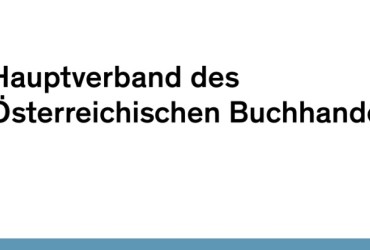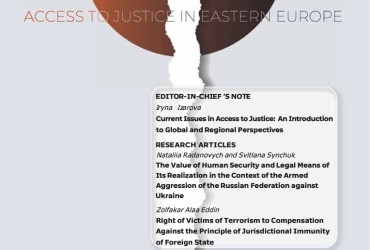
Open Access Journals

New Issue Launch: AJEE Special Issue 2025
AI and Law: Navigating the Digital Transformation of Justice
We are proud to present the Special Issue of Access to Justice in Eastern Europe (4/2025), titled "AI and Law". In an era where technological innovation is reshaping the very fabric of legal systems, this issue moves beyond theoretical debate to examine the practical, ethical, and regulatory realities of integrating Artificial Intelligence into the judiciary.
This edition underscores the unique responsibility of the legal community to ensure that digital transformation strengthens, rather than erodes, the rule of law. The articles in this issue provide critical comparative perspectives, exploring how diverse jurisdictions—from Ukraine and Germany to the broader European and global landscape—are balancing efficiency with fundamental rights.
Issue Highlights:
AI in Criminal Justice: In "Artificial Intelligence in Criminal Justice in Germany and Ukraine: A Comparative Legal Study," Lidiia Moskvych, Iryna Borodina, and Olga Ovsiannikova provide a timely analysis of how AI tools are being deployed in high-stakes environments. The authors contrast the experience of predictive policing in Germany with Ukraine’s emerging use of tools like the "Cassandra" risk assessment system, offering a roadmap for ethical regulation that prioritizes human oversight.
The European Perspective: Goda Strikaitė-Latušinskaja tackles the central debate of automation in "AI Systems in Judicial Decision-Making: Support vs. Supersede – The European Perspective." Her analysis defines the boundaries of the European human-centric approach, arguing that while AI can enhance efficiency as a supportive tool, the legitimacy of justice depends on retaining human authority in final decision-making.
Courts and Dispute Resolution: Muhammad Qadeer Ashraf explores the transformative potential and risks of algorithmic adjudicators in "Artificial Intelligence in Courts and Dispute Resolution: Challenges and Opportunities." This contribution critically assesses the "black box" problem and the implications of fully autonomous AI for the right to a fair trial, advocating for robust ethical safeguards.
Regulatory Challenges in Kazakhstan: Anuar Nurmagambetov and co-authors examine the emerging legal landscape in "AI and Law: Procedural Safeguards and Regulatory Challenges in Kazakhstan." Identifying gaps in the governance of high-risk systems, the article proposes a phased reform strategy inspired by EU and OECD models to ensure transparency and accountability.
Data Protection in Vietnam & the EU: Phuong Anh Nguyen offers a compelling comparative study in "Artificial Intelligence in Criminal Justice: Balancing Technological Innovation and Personal Data Protection Rights." The author argues for a "dynamic balance" between innovation and privacy, suggesting institutional reforms to safeguard personal data in criminal proceedings.
We would like to congratulate the team of editors—Mag. Yuliia Hartman, Dr. Goda Strikaitė-Latušinskaja, and Mag. Costas Popotas—on such excellent work!
We invite our readers to explore these contributions and join the global dialogue on the future of justice in the digital age.
Our Last Issue: AJEE 4/2025
This issue underscores the unique responsibility of the legal community to provide the frameworks necessary for accountability, reconstruction, and justice. The articles in this edition are divided into two powerful sections: navigating the complex legal consequences of war and analyzing the adaptation of law to novel societal challenges.
Issue Highlights:
War and Private Litigation: Bogdan Karnaukh explores a fundamental question in “Can Tort Law Handle War? Reflections on Private Litigation for War-Related Damages in Ukraine,” examining the capacity of civil liability to address the devastation of aggression.
International Responsibility: Maya Khater and co-authors provide a critical look at state accountability in “Legal Responsibility of Iran for Compensating Victims of the Syrian War”.
Evolving Rights: In the sphere of human rights and social adaptation, Shejnaze Gagica, Berat Dërmaku, and Dukagjin Leka present a comparative overview in “Marriage Between the Same Sexes in the Republic of Kosovo”.
We invite our readers to explore these contributions and join the global dialogue on strengthening the foundations of justice.
Our Archive:
The Special Issue of 2022 related to the war in Ukraine
The whole our archive is here: All Issues
Інформація про видання українською мовою на цій сторінці
We are exclusively receiving submissions through Scholastica. We welcome various article types related to access to justice and legal science, all of which undergo rigorous peer review and are evaluated without any editorial prejudices.
partly consisting of young academics’ essays;
with overview of current judgments important for law enforcement;
Why Europe Should Reconsider its Anti-Arbitration Policy in Investment Disputes
Extraordinary Complaint in Civil Proceedings under Polish Law
Small Claims and Procedural Simplification: Evidence from Selected EU Legal Systems

We are delighted to announce that our publisher, Academic Insight Press, is now an official member of the Austrian Booksellers and Publishers Association (HVB)!

New AJEE Issue 3/2025

We are pleased to announce that the Access to Justice in Eastern Europe (AJEE) journal has updated several key documents guiding our publication process. These updates aim to improve clarity, uphold high ethical standards, and ensure consistency with international best practices in legal and interdi